South Carolina Adoption


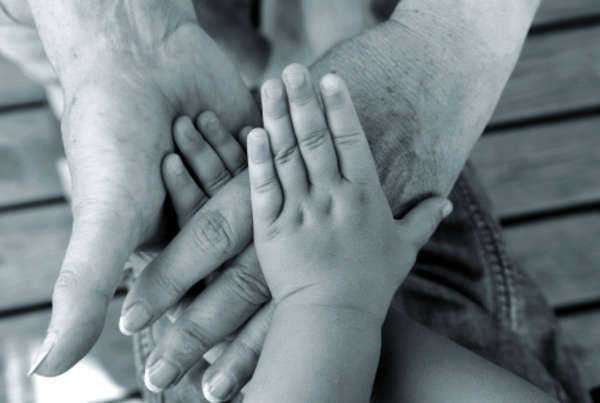
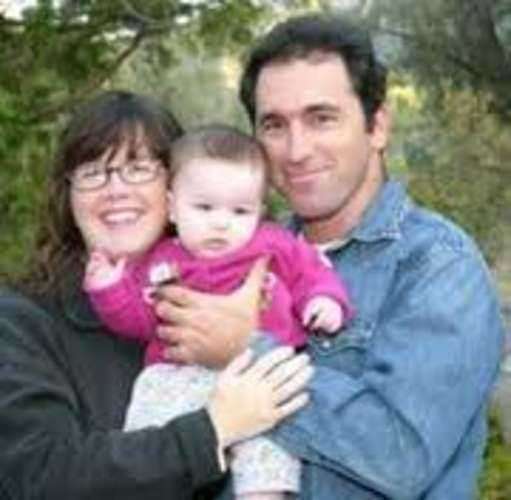
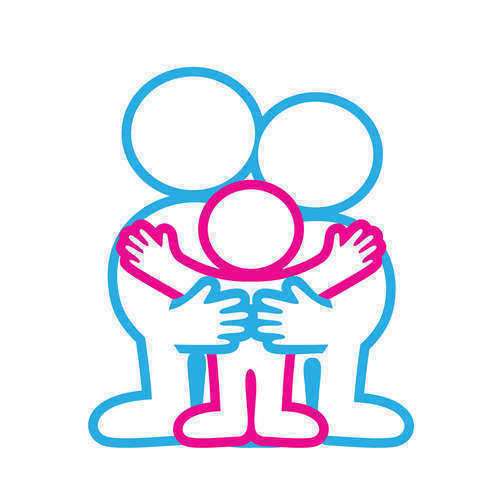
Kansas Adoption Laws, Agencies, and Other Services
Kansas Adoptions
The state of Kansas contains multiple statutes that directly address adoption. Most of these statutes are located in Article 21 of Chapter 59, and several of specific laws will be discussed within this article. You can also find information on adoptions agencies throughout the state, as well as services under the Department of Social and Rehabilitation Services.
Specific Kansas Adoption Statutes
Rules for those who qualify for Kansas adoptions are located in §59-2113. According to this specific state, “Any adult, or husband and wife jointly, may adopt and minor or adult as their child in the manner provided K.S.A. 59-1111 through 59-2143, except that one spouse cannot do so without the consent of the other.”
The statute makes no reference to qualifications for the individual—as long as the adopting party is at least 18 years old—meaning Kansas law offers no prohibitions against GLBT adoptions.
The state will never give preference to person with a criminal background in Kansas adoptions, and the applicant must show evidence of a safe and clean home, as well as a strong, secure financial history.
Where can I find Kansas Adoption Agencies?
There are Kansas adoption agencies around the entire state, but you may not always choose go through an agency closest in proximity. Different agencies offer slightly different services, and some agencies help children in certain regions of the world, demographics, and/or with certain special needs.
The Kansas Adoption Process
The first step to any adoption involves the adopting party filing a petition with the local court. Prospective parent(s) are highly encouraged to hire an adoption attorney to help with the entire process, but a lawyer is not always necessary if the adopting party goes through an agency.
After the petition has been filed for Kansas adoptions, the future parent(s) will have to complete required training and education from the adoption agency. This education helps the adopting party understand the responsibilities involved in the adoption process, and after training is completed, the adopting party will have to go through a home study and undergo a criminal background check and other clearances.
If the adoption agency determines the party is fit for Kansas adoptions, the parent(s) will look through a listing of children and choose which child they want to adopt. After the Kansas adoption has been approved by the court and the rights of the blood parents have been terminated, the adopting parents will become the legal parents of the child.
What is the Kansas Department of Social and Rehabilitation Services?
This program offers Kansas adoptions for children who have been subject to abuse or neglect and have medical, emotional and developmental needs. Parents who choose this type of Kansas adoption can receive assistance from the state for the special needs of the child, and for more information,
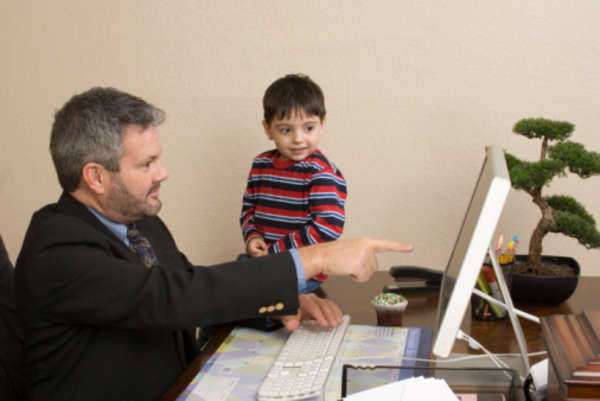
New Jersey Adoption Laws:
Frequently Asked Questions Associated with New Jersey Adoption:
Do I have to be a certain age to partake in New Jersey Adoption?
• To engage in New Jersey adoption, you must be at least 18 years old at the time the adoption is finalized. You must also be at least ten years older than the child you wish to adopt.
Do I have to be Married to Engage in a New Jersey Adoption?
• There is no mandatory relationship status to file for New Jersey adoptions. You may be married, single, in a civil union or a domestic partnership. The Department of Children and Families in Moreover, the New Jersey does not deny or preclude individuals from New Jersey adoptions based solely on their race, ethnicity, gender, sexual orientation, gender expression, religion, culture, affectional orientation, domestic, marital or civil partnership status.
Do I have to Own My Own Home to Engage in a New Jersey Adoption?
• NJ Adoption: New Jersey does not force ownership requirements for those looking to file for New Jersey adoptions. You may own a home, rent an apartment or live in a condo; however, the child—to be granted a New Jersey adoption—requires his/her own bed (not necessarily his/her own bedroom) and ample space for his/her personal belongings.
What are the Financial Requirements for a New Jersey Adoption?
• New Jersey Law on Adoption: To successfully secure a New Jersey adoption, you must be able to financially support and care for your family. There is no exact dollar figure that automatically grants New Jersey adoptions; however, the state will review your finances, expenses and income to determine if you are eligible for a New Jersey adoption.
Is there Assistance Available for New Jersey Adoptions?
• NJ Adoption Laws: New Jersey adoption subsidies are available to the majority of families who adopt children with disabilities/special needs. Subsidies include monthly payments for clothing, medical care coverage, food, medical equipment etc. Subsidies for New Jersey adoptions are also used to satisfy legal fees needed to finalize the New Jersey adoption.
Do I Have to be a Citizen of the United States to Adopt?
• NJ Adoption Laws: No, you do not need to be a citizen of the United States to engage in a New Jersey adoption; however, you must have legally entered the nation and plan on staying here long enough for a formal placement to occur.
How Long Does a New Jersey Adoption Take to Finalize?
• This question is nearly impossible to answer because the time it takes to finalize a New Jersey adoption will vary based on circumstance. The following variables are the main factors that will either delay or facilitate the filing for a New Jersey adoption:
o NJ Adoption Laws: The sex, age, race and health of the child which you are applying to adopt. The more open and flexible you are to the child, the more quickly you will be considered for a New Jersey adoption.
o NJ Adoption Laws: The type and number of children in need of new Jersey adoption placement
o NJ Adoption Laws: How quickly you can offer references, medical reports, financial information etc.
Path to New Jersey Adoption:
The New Jersey Department of Children and Families works in tandem with the Foster and Adoptive Family Services to facilitate the New Jersey adoption process; these agencies respond to inquiries made by prospective adoptive parents. Therefore, the first step to engaging in a NJ adoption law is to contact the Department of Children and Families either at their website or at their toll free number: 1-900-99-ADOPT
After contacting the agency, they will send you a packet of information which includes an application for New Jersey adoptions. Following the delivery of information, the Department of Children and Families Local Office Family Recruiter will then contact the prospective family/adopting parent to arrange an interview/engagement meeting, where detailed information about New Jersey adoption is provided. This meeting will go over eligibility criteria for New Jersey adoption and the types of children in need of adoptive homes or foster care.
Those adopting families or parents who are interested in proceeding with New Jersey adoption are encouraged to fill-out their application. Following completion, the application is reviewed by the Resource Family Supervisor. Background checks are performed before accepting the application for processing. If all goes well, a resource family worker will contact the prospective adopting parent to begin the home study process.
NJ Adoption Laws: The Home Study Process
With a New Jersey Adoption, the home study process refers to a system by which a resource family worker inspects the prospective parent’s home to determine whether the dwelling is appropriate for adoption and the type of child most compatible with their family. There are several parts to the home study process:
NJ Adoption Laws: Pre-service Training
The Department of Children and Families provides 27 hours of training to prospective adopting families/parents. The training helps applicants determine if adoption is what they want while preparing them for the realities of adoption.
NJ Adoption Laws: Home Visit/Interviews
This form of pre-service training provides an opportunity for the agency to get to know the prospective adopting parents. This stage of New Jersey adoption is a formal assessment that supplements information retrieved from the aforementioned stage. Home visits and interviews allows the caseworker to procure information needed for a formal assessment while allowing the applicants to illuminate any specific issues that arise during the New Jersey adoption process. Moreover, the home visit provides the agency with the opportunity to review the home and assess whether or not the dwelling meets the state’s safety standards.
NJ Adoption Laws: References
References are procured during the home study to ensure that a thorough assessment is made to determine the applicant’s ability to care for a child. References for New Jersey adoptions include school, employment, personal, child care and medical. Criminal background checks are also performed on every individual over the age of 18 that lives in the house.
NJ Adoption Laws: The Approval Process
After the above steps are fulfilled, the case worker and the division will render a decision regarding the applicant’s case for New Jersey adoption. If, after review of the application and home study process, the division does not view the candidate appropriate for a New Jersey adoption, the evaluation will be discontinued. In most cases; however, the prospective adoptive family will be approved and granted the ability to engage in New Jersey adoption following completion of the homestudy process.

The Laws, Requirements, and Process of Missouri Adoption
One of the beautiful things in this world is the ability to proceed with an MO adoption. Specifically, in this case, a Missouri adoption.
But how does one go about it? What are the laws? What are the qualifications? This will investigate everything you need to know about MO adoption.
A Common Law of Missouri Adoption
What makes a child adoptable?
First and foremost, these specific characteristics would abide by the Missouri law of adoption:
1. Both Birth Parents Agree
2. Termination of Parental Rights
3. Neglect or Abuse
4. Death of Parents
If any of these are present, the child by law is able to be adopted by anyone. Of course, in any state there are specific needs when it comes to MO adoption.
What About Missouri Adoption? Any Needs?
In the state of Missouri, the standard consensus is that a need for African American parents to adopt older foster children is crucial. There are, though, other issues, such as:
1. Race
2. Religion
3. Age
4. Sexual Preference
5. Marital Status
6. Disability
All of that is taken into account when considering MO adoption, especially if the birth parent is still present with the issue of agreeing to adopt. If the birth parent specifically requests a certain kind of adoption parent – whether by race, religion, age, or disability (or no disability) – priority is given to those considering Missouri adoptions matching those qualities.
Overall, though, the ultimate best interests on behalf of the child are the highest priority.
Is There Any Going Back With Missouri Adoptions?
No. Generally speaking, once the consent to adopt reaches the courts, birth parents – if available – cannot simply revoke that consent for Missouri adoptions.
Understand the Costs of Missouri Adoptions
Amazingly enough, it just so happens that Missouri adoptions aren’t just for the super-rich. Although most adoptions can cost anywhere from nothing to $40,000. It all depends on the type of Missouri adoption, basically.
The Standard Process
Once an adoption agency works with a prospective individual or couple on the adoption of a child in Missouri and a choice has been made along with proper legal consent, the process of adoption can take anywhere from days to years. That, of course, all depends on just how specific the prospective parents adopting the child are about the child in question.
Of course, Missouri law does require adopting parents to wait a total of six months before adoption finalization. More often than not, an attorney is essential for either the birth parent(s) or adopting parent(s), since the adoption process revolves around legal matters. They are, however, not required.
Do the Birth Parents Still Have Rights Even After a Missouri Adoption?
Generally, no. There’s no legal mandate either for visitations. That doesn’t, however, rule out the adopting parent(s) and birth parent(s) ability to work something out. There’s no prohibition on visitation by law for birth parents in Missouri.
Such issues can be interpreted by either adopting parent or birth parent with the facilitation of a skilled adoption law attorney, possibly resulting in casework for a judge to decide on a ruling when there is no statute available.
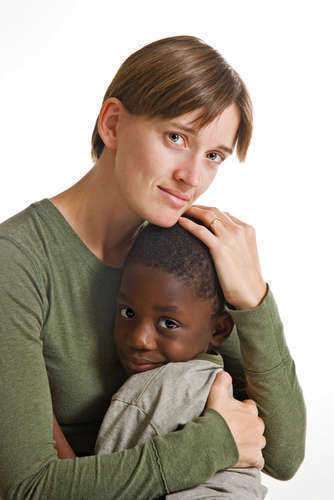
What is Virginia Adoption?
Virginia adoption is the process of placing children—who are permanently and legally separated from their birth parents—with a new family. Virginia adoption is a legal and social process that provides new parent(s) with the same obligations and rights as biological parents.
VA adoption procedure is governed by Chapter 12 of the Code of Virginia. According to Virginia adoption law, there are only two forms of adoptive placements that are permitted: agency and non-agency placements.
Agency placements—under VA adoption law–take place when the child is in custody of local departments of social services or licensed child-placing agencies. Under these circumstances, all associated parental rights are eliminated and custody is granted to the agency. Following this, the agency must consent to the child’s adoption.
A non-agency adoption occurs when the child is not in the formal custody of an agency. Under a non-agency placement, the legal guardians or birth parents consent to the adoption. In this form, parental rights are eliminated by final order of the adoption.
With the exception of authorized child-placing agencies only biological parents and legal guardians are permitted to place a child for adoption in the state of Virginia. Although any person under VA adoption law may provide assistance to biological parents with regards to locating a prospective adoptive family, only birth parents and legal guardians actually place the child for adoption.
According to Virginia Adoption Law, there are Three Different Forms of Non-Agency Adoptions:
• Stepparent Adoptions According to VA Adoption Laws:
o Stepparent adoptions—under VA adoptions laws–occur when the spouse of an adoptive or birth parent is adopting the child. In this method, consent is either not required or has already been obtained. Investigations—undertaken by the state—will only take place if the court determines it is fundamental before the adoption is affirmed. If the court fails to consider an investigation necessary, the Virginia adoption agency will become involved when the petition is filed and the circuit court enters the reference order
• Parental Placement Adoptions According to VA Adoptions Law:
o These types of Virginia Adoptions are governed by the Code of Virginia sections 63.2—1230 through 63.2—1240. In parental placement Virginia adoptions, the responsible child placing agency engages in a home study to report the worthiness of the adopting parents. Following completion of the home study, the agency will file a petition with the juvenile and domestic relations court. This body—using VA adoptions–will execute consent and award custody to the prospective Virginia adoption parents. The juvenile and domestic relations court—based on VA adoption law–is responsible for reviewing the home study report and collateral material to evaluate whether the stipulations and requirements of VA adoption law have been satisfied. The court is also responsible for accepting parental consent and transferring custody to the Virginia adoption parents. This court also is responsible for accepting parental consent and transferring custody to the adoptive parents. Virginia adoption petitions may then be filed with the local circuit court
• Adult Adoptions According to VA Adoption Law:
o Adult adoptions are a form of VA adoption where the individual (over the age of 18) files a Virginia adoption petition with the state. Virginia adult adoptions are governed by section 63.2-1243 of the Code of Virginia. In an adult VA adoption, the agency will become involved when the adoption petition is filed in the circuit court system
Steps to a Virginia Adoption:
1. Initial Contact: Based on VA adoption law, the first step to a Virginia adoption is calling (800)-DO-ADOPT or e-mail the Adoption Resource Exchange. During this initial correspondence you may ask any questions that you may have concerning Virginia adoptions. After these inquiries, you may be referred to a local Virginia department of social services to private child placing agencies for official orientation.
2. Orientation: According to VA adoption, you– following your initial correspondence,–will be invited to a meeting to learn more about the Virginia adoption process and the types of children waiting to be adopted. The orientation—according to VA adoption–may include a group meeting with other families interested in Virginia adoptions or may take the form of an individual meeting with an agency social worker. Regardless of the format, you should ask any questions pertaining to Virginia adoptions that you are curious about.
3. The Application: According to VA adoption, to apply for Virginia adoption services, you must complete the official application. You can request the application in person, by mail or via the telephone. Application forms for Virginia adoption vary; however, most will ask you questions concerning your health and family history, your income and your relationship status. Complete the application, sign it and return it to the Virginia adoption agency. The social worker—under VA adoption law–will then explain the process of the home study and how the information you submit will help determine the type of child that will best fit your situation.
4. Home Study: During the home study process, you will go-over the reasons for wanting to adopt and the type of child you can best parent. The social worker will, in turn, go-over what the state expects from you as an adopting parent. All members of your immediate family are involved in the Virginia adoption process. The home study is finalized through a series of meetings (held at your residence). During these meetings the social worker or state will walk-through your house and take notes concerning your lifestyle and living habits. When the home study concludes, you and the social worker will decide whether you—as determined by Virginia adoption laws—are fit to adopt. If you are determined equipped to adopt, the state will decide what type of child you can best raise. Remember, during the Virginia adoption process, the social worker is not looking for the perfect family, but instead, the family who has most successfully coped with life experiences.
5. Selection: If—after finalizing the home study process—the social worker determines you able and ready to adopt, the state will show you pictures of available children. In addition to pictures, VA adoption law requires the state will provide basic information concerning each child. When you a find a child you are interested in, you and the agency will consider whether your family is right for the child. Deciding against Virginia adoptions—with regards to a particular child–does not prevent you from being considered for other Virginia adoptions.
6. Placements: The Virginia adoption placement process begins with visits between the prospective child and the adopting family. The number of visits before the affirmation of placement is dependent on the child’s ability to cope with a move. When the social worker feels that the child is ready to be formally adopted, arrangements are made for placements in the adoptive home.
7. Post Placement Practices: Once the child is placed in the home, the Virginia adoption worker will visit you at least three times during the first six months. These visits intend to facilitate the transition phase for both you and your adopted child. During this stage of the Virginia adoption process, you should speak with the worker about any concerns you have. Virginia adoption laws require the child to live in your home for at least six months and be visited at least three times before the Virginia adoption can be finalized
8. Legal Procedures and Finalization: To affirm Virginia adoptions under VA adoption law, it is best to get an attorney. The Virginia adoption attorney will file petitions with the adoption court to formally enter the final order of Virginia adoption.
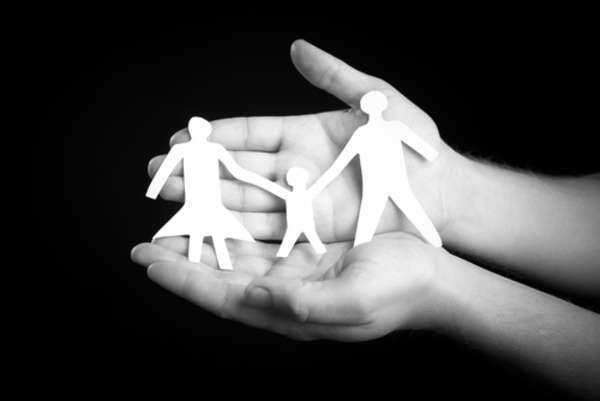
Laws and Procedures Associated with Washington Adoption:
In 2003, there were over 1,200 adoptions of children in custody of Washington’s Department of Social and Health Services. The purpose of Washington’s adoption program is to satisfy the permanency needs of children who are placed in the care and custody of the Department of Social and Health Services.
The Washington Department of Social and Health Services strive to find stable and safe families that can effectively meet the needs of adopted children.
Proceeding with Washington Adoption:
What you must consider when looking to Adopt in Washington:
• WA Adoption: Do I want to adopt a boy or girl?
• WA Adoptions: What age of child am I looking to adopt?
• WA Adoption: Am I interesting in adopting a sibling group?
• WA Adoptions: Should I consider adopting a sibling group in order to get the type and age of child I am interest in?
• WA Adoption: Should I be willing to have open communication with the child’s birth parents?
• WA Adoptions: Can I parent a child who is physically or sexually abused and/or neglected?
• WA Adoptions: Can I parent a child that faces on-going medical issues, is diagnosed with a developmental disability who is developmentally delayed?
• WA Adoptions: Can I parent a child who is exposed to alcohol and drugs in utero?
• WA Adoption: Does the ethnicity of the child I adopt?
• WA Adoptions: How does my extended family feel about Washington adoption?
• WA Adoption: If I participate in a Washington adoption with a child of a different race or ethnicity will I be judged by my family and friends?
• WA Adoptions: How will I handle adoption-related questions posed by my child?
Washington Adoption: Laws and Requirements
As a real general overview, to successfully partake in Washington adoption, you are required to be:
• WA Adoption: Deemed legally competent by the state of Washington and the State Department of Social and Health Services
• WA Adoption: 18 years of age or older
• WA Adoptions: Be approved following a home study
Who must Consent to a Washington Adoption?
• WA Adoptions: The adoptee, if fourteen years of age or older
• WA Adoption: The parents and the alleged father
• WA Adoptions: The legal guardian
• WA Adoption: A department or the agency to whom the adoptee has been relinquished pursuant
When Parental Consent is not required:
• WA Adoption: A parent’s rights are terminated in the child’s best interest and due to failure to perform parental duties
• WA Adoptions: For Native American children, a parent’s rights can be terminated only pursuant to standards set forth in Washington adoption law
When Can Consent Be Executed?
• WA Adoption: Parents may petition and provide written consent to relinquish may be filed before birth; however, the hearing may not be held prior to 48 hours after the birth of the child
• WA Adoptions: If the Child is of Native American descent, the petition and consent must not be signed until at least 10 days after the birth
Revocation of Consent:
• WA Adoption: Consent may be revoked until the court approves it. Following this, consent is deemed irrevocable, except that for 1 year, consent shall be revoked for lack of mental competence, duress or fraud
Grounds for Termination of Parental Rights:
The following—according to Washington adoption laws—are circumstances that are grounds for termination:
• WA Adoption: Abuse and/or neglect
• WA Adoptions: Abandonment or parental disinterest
• WA Adoption: Drug or alcohol induced incapacity
• WA Adoptions: Mental illness or deficiency
• WA Adoption: Child judged in need of services/dependent
• WA Adoptions: Sexual abuse
• WA Adoption: Neglect or loss of rights of another child
• Child’s best interest
• Felony assault of sibling or child
Who is allowed to Adopt?
The following persons are permitted to proceed with a Washington adoption:
• Any individual 18 years of age or older who is:
o Legally competent
o Approved family assessment
Who may be adopted?
• Any person, regardless of residence or age
Who may Place a Child for Adoption?
• A guardian or parent
• The Department
• A child placing agency
Cost of Washington Adoption:
The cost of a Washington adoption from the public foster care system is typically kept to a bare minimum. Incurred costs are typically limited to the following:
• Attorney Fees
• Adoption home studies
Outside adoptions (those initiated privately) can range from $4,000 to $40,000, whereas an independent adoption can range from $8,000 to $40,000.
Steps to a Washington Adoption:
1. The first step to a Washington adoption requires you to contact your local office.
When you contact the department, a worker will answer any of your questions, send you information and provide information—through the delivery of adoption brochures—for their particular office.
If you are looking to finalize a Washington adoption, you should sign-up for pre-service training courses through your local office. Washington adoption law states that you are required to have 30 hours of training to learn about foster issues and adoption. When training is complete, you can be assigned a social worker.
2. Adoptive Home Study: All prospective adopting parents must undertake an adoptive home study. The adoptive home study’s primary purpose is to evaluate whether parents are eligible to proceed with a Washington adoption. The process of a Washington adoption involved preparation and educations as well as procuring information concerning the prospective parents. An Adoptive home study will include the following steps:
a. Application is provided by the agency
b. Preparation classes: To secure a Washington adoption, you are required to take 30 hours of pre-service training. Class schedule information may be found on the Foster Parent Training site.
c. Criminal History Background Check: this portion of the home study is organized through your social worker. A criminal history background check must be completed on every individual over the age of 16 residing in the prospective home. A national fingerprint test must also be completed for all adults in the home over the age of 18 and above, has lived in another state over the last 5 years, a background check will be inspected from other states. These tests will be organized through your social worker
d. Child Neglect and Abuse Inquiries: This is a portion of the background check. Washington state records are checked for every individual in the home for anyone 16 years of age and older. All individuals in the home above the age of 18 who have lived in another state during the last five years will be checked.
e. Personal Information: The DSHS will implement a form to provide your social worker with information about you. The application will question the following subjects:
i. Family facts, Education, Employment History, Cultural background, Relationships, Parenting and Experience with Children, Medical and psychosocial questions, Religious affiliation and practices, Support Systems and home and neighborhood questions
f. Medical Statements: This is a confidential form that your medical professional will fill-out regarding historic and current medical ailments. Your social worker will provide you with the necessary forms.
g. Income Statements: The social worker—for a Washington adoption—will provide you with a worksheet that will seek information on the following topics:
i. Income
ii. Vehicles
iii. Bank Accounts
iv. Employment
v. Home
vi. Credit card debts
vii. Assets
viii. Child Support
ix. Loans
x. Paid Leave
xi. Insurance
Home Study Approval:
A home study for Washington adoptions must be approved to continue with the process. In general, home studies for Washington adoptions will be approved within 90 days
3. Child Selection for Washington Adoptions: There are various ways to select a child for Washington adoptions:
a. Social workers will contact you concerning a specific child for Washington adoptions
b. Or you can contact the social worker about children you either found on a site or heard about
You and your social worker must be in contact to secure background information about the child up for Washington adoptions. At this point, you may begin working with 2 different social workers: your social worker and the child’s social worker for Washington adoptions.
4. Visitation and Placement Process: To go ahead with Washington adoptions you must ensure that there has been a disclosure of the child’s medical, family and social background. For Washington adoptions to be finalized, it may take two weeks to several months to place the child in your home depending on the youth’s needs (age, therapy and medical issues, school, child’s well-being, location of the adoptive family etc.). Visitation for Washington adoptions will typically begin at a location deemed safe for the child. Visits will lengthen in time; they get progressively longer until the youth moves to your home.
5. Post Placement: During this portion of the Washington adoption process, your social worker will continue working with you until the adoption is affirmed. Washington adoptions, in this stage, entail the arrangement of needed services (medical, schooling, counseling, child and family etc.). Washington adoptions will also require the social worker to come to your home to check on the well-being of the child at least once every 90 days until the adoption is affirmed.
6. Steps for Legal Procedures and Finalizing Washington Adoptions:
a. Contact a Washington Adoption attorney
b. Finalize the adoption support application delivered to you by your social worker. When completed, the adoption support program specialist is assigned to you. The program specialist reviews your application to determine if the youth qualifies for the program according to Washington and federal laws. The negotiated contract outlining the benefits and terms will be presented for signature.
c. The social worker must complete a post-placement report. The report provides the court with an update of the family’s and child’s well-being since placement
d. DSHS provides a Consent to Adopt for Washington adoptions. This is a written statement to authorize that the child may be adopted
e. The social worker—to finalize Washington adoptions—will send your attorney a packet containing crucial documents for Washington adoptions
f. Your attorney will prepare the document to present to the court. Your attorney will also file the petition and secure a court date to finalize Washington adoptions
g. When the date is secured you will appear before the court.

What are Adoption Statistics?
Adoption statistics are resources that provide adoption agencies or coordinating government departments with valuable information concerning the adoption process. Adoption statistics provide all kinds of information regarding the various forms of adoption; adoption statistics will offer state, national, and international information on public foster care, private adoptions, and inter-county adoptions.
Through the evaluation of such adoption statistics, a coordinating adoption agency can better understand their particular procedure’s shortcomings. The delivery of such information will enable all parties involved with adoptions to better analyze their particular situation as to avoid some of the pitfalls associated with adopting a child.
Time is needed to compile, analyze and subsequently publish adoption statistics. As a result, adoption statistics are usually made available to the public after 2 or more years after the tiem numbers were originally analyzed. Adoption statistics can come from a number of sources; government departments aligned with a particular state’s adoption statistics as well as adoption agencies themselves are the primary entities that release such information.
General Adoption Statistics in the United States:
The total number of adoptions in the United States from 1987 to 2001 remained relatively constant; the total number has ranged from a low of 118,138 adopted children in 1990 to 127,630 in 2000.
According to affirmed adoption statistics, over one-third of American have considered adoptin, but no more than 2 percent of American have actually adopted children.
In 1995 there were nearly 10 million ever-married American women ages 18 to 44 who had ever considered adoption, and these adoption statistics amounted to more than one-fourth of all ever-married women.
Nearly 16 percent of those who had considered adoption or 4 percent of the total of ever-married women (roughly 1.6 million women) had actually initiated concrete steps towards adoption; this percentage may represent those seeking to adopt.
That being said, only 31 percent of those who had actually pursued concrete steps towards adoption (1.3 percent of the total of ever-married women) or 487,000 women had ever completed an adoption.
Adoption Statistics for Public Adoptions:
Children in the public child welfare system are placed in permanent homes by public, government-operated agencies, or by private agencies contracted by a public agency to place waiting children. In 1992, 15.5% of adoptions (19,753) were public agency adoptions. (Flango and Flango, 1994)
Between 1951 and 1975 the percentage of adoptive placements by public agencies more than doubled from 18% in 1951 to 38% in 1975 (Maza, 1984), and has since fallen to approximately 15% to 20% of all adoptions. (Flango and Flango, 1994)
Adoption Statistics for Private Adoptions:
In a private agency adoption, children are placed in non-relative homes through the services of a non-profit or for-profit agency which may be licensed by the State in which it operates. In an independent or non-agencyadoption, children are placed in non-relative homes directly by the birthparents or through the services of one of the following: a licensed or unlicensed facilitator, certified medical doctor, member of the clergy, or adoption lawyer. There were 47,627 adoptions (37.5%) of this type in 1992. (Flango and Flango, 1994)
The highest percentage of adoptions completed by private agencies was 45% in 1970. Between 1951 and 1975, the percentage of adoptive placements not made under agency auspices declined substantially from 53% of all adoptions in 1951 to 23% of all adoptions in 1975. The lowest percentage was in 1971 and 1972 when independent adoptions constituted only 21% of all reported adoptions. (Maza, 1984)
Adoption Statistics for International Adoptions:
Children who are citizens of a foreign nation are adopted by U.S. families and brought to the United States. This area of adoption has been practiced since the 1950's, but has shown a dramatic increased in the past decade. In 1992, there were 6,536(5%)international adoptees brought to the United States; in 1997, that number increased to 13,620. (United States Department of State)
